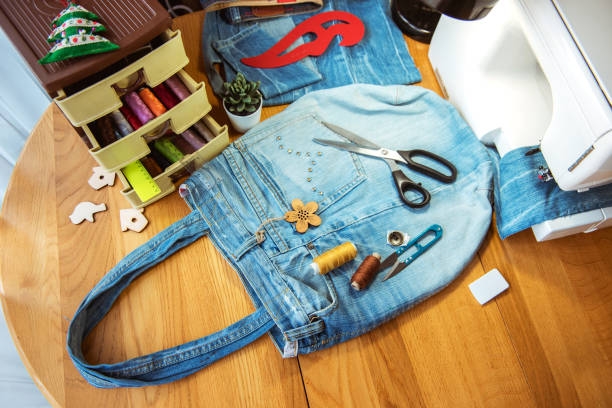Craftsmanship and Innovation in Handmade Handbags within the Sewing Bags Market

The Sewing Bags Market has experienced significant growth in recent years, driven by evolving consumer preferences towards functional and stylish storage solutions. Among various product types, Custom Tote Bags have emerged as a distinct and influential segment that combines utility with personalization.
Custom tote bags appeal to consumers who seek both practicality and unique, personalized designs. This sector is thriving due to the increasing demand for personalized products that reflect individual tastes, making these bags popular gifts, promotional tools, and fashion accessories. Innovations in printing and embroidery technology have made customization more accessible and affordable, broadening the consumer base.
Moreover, customization extends beyond aesthetics to include size, compartments, and material choices, further enhancing the user’s experience. Brands are leveraging online platforms to offer tailor-made designs, which has expanded the reach of custom tote bags globally.
The growth of environmentally conscious consumer behavior also complements this trend, as many custom tote bags now incorporate sustainable fabrics, aligning personalization with eco-friendly values. The rising demand for sustainable yet fashionable products provides a solid growth trajectory for custom tote bags within the broader sewing bags market.
This segment’s expansion underscores a broader shift within the Sewing Bags Market toward user-centric, multifunctional, and aesthetically pleasing products that combine tradition with modern lifestyle needs.
Eco-friendly fabric bags often use recycled, organic, or biodegradable materials, offering an alternative to plastic and other non-sustainable options. This shift aligns with global regulatory pushes and increasing awareness about climate change and waste reduction. Brands offering these bags underscore their commitment to sustainability, which strengthens consumer trust and broadens market appeal.
Innovation in sustainable materials and manufacturing processes is advancing quickly, with suppliers focusing on durability, style, and eco-conscious certifications. This enhances the market viability of eco-friendly fabric bags and encourages further adoption.
DIY sewing kits have gained popularity as they provide functionality and a sense of accomplishment. They often contain precut fabrics, patterns, and detailed instructions, catering to a wide range of skill levels from novices to experts. This accessibility has broadened the demographic appeal of sewing activities, encouraging hobbyists and aspiring designers alike.
The trend is boosted by social media communities that share tips, projects, and inspiration, creating a vibrant ecosystem around sewing DIY. Retailers and brands incorporate DIY kits as part of experiential marketing, enhancing customer engagement and loyalty.
In addition to creative empowerment, DIY sewing kits contribute to sustainability by encouraging product longevity and personal care through self-maintenance. This trend
- Art
- Causes
- Crafts
- Dance
- Drinks
- Film
- Fitness
- Food
- Jeux
- Gardening
- Health
- Domicile
- Literature
- Music
- Networking
- Autre
- Party
- Religion
- Shopping
- Sports
- Theater
- Wellness

